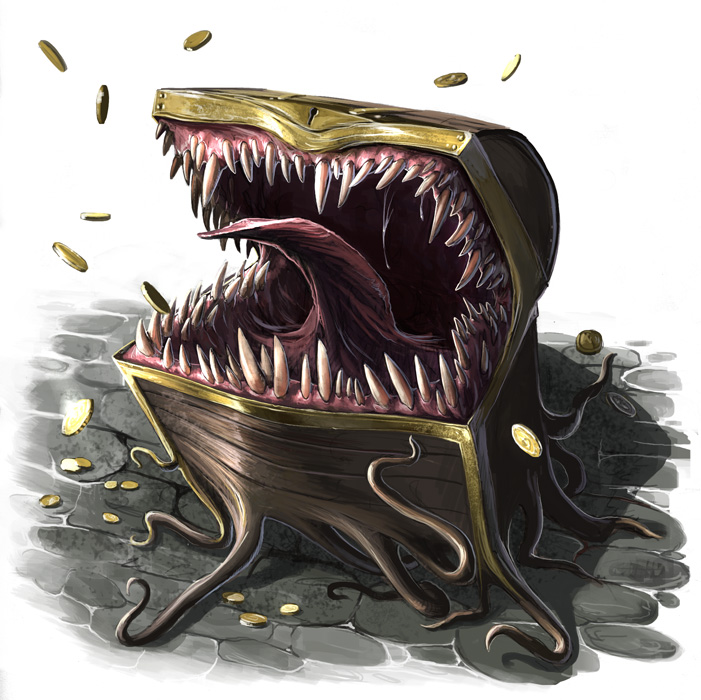Interesting ideas for starting your Campaign.
Interesting ideas for starting your Campaign.
We have all used the tried and true “You start in a tavern,” setup for your campaigns. It’s a natural place for people to hang out when not doing anything, opens them up to be approached by a quest giver, and is just simply easy to work with. If you want to start your adventures off with a bit more excitement, but don’t know how, here are some ideas for you to work with.
Flipped First Session
Building off the “You start in a tavern” trope, typically in a first game session the party will pick up their first mission, go to their first dungeon, fight their first battle, get their first treasure, then go back for their reward (hopefully).
Since you know your party are the party, an interesting change you can do is to have them start having just finished what would be their first adventure. “Congratulations!” You say to them, “you have killed the goblin and found the missing mirror for Lady Lilly. You also found five sacks worth of gold and other valuables. Sadly though, the rope bridge you used to get here is broken. You’ll have to find another way out of the cavern.”
This does a couple things for your party. It gives them a clear initial goal (get out, maybe return the mirror). It skips the messy “How did you guys decided to join together?” letting them hand wave it off if they don’t care about that particular detail. It also gives them a secondary goal you can use against them. If a player fails a roll, you can give them choices to burn some of the bags of treasure you gave them. It’s both a reward for them, and a tool to be used against them. Will the warrior go back to save the sack of cash? Does the Wizard value his books or his gold more?
Gladiators
This start requires your party to have agreed before character creation that all you’re character’s stories end with them becoming gladiators for one reason or another. This start lets you immediately throw them into an encounter, and even lets you start the game without making bonds. The party is fictionally forced together, so they don’t need a reason for why they’re a group “They haven’t tried to kill me in the past” is more then enough reason to trust someone to help you escape. Which is again a very good way to give your party some initial direction. If you go their route, you should map out several different options for the party to use to escape. Some are obvious and require brute force and some good rolls, while others should require brain power and guile.
If you go with this option, I personally recommend you should plan to keep them there for just a tiny bit, so the whole “You are here against your will” feeling can have some sort of effect, but do plan for them to escape at any given time, even the first encounter a minute into the session. By keeping them in the Colosseum, they can banter with fellow gladiators between matches, make friends and rivals, then have those matches play out in the arena. If you feel the party is stuck, and can’t figure out or agree on how to escape, you can always have an authority figure, or a totally not a roman emperor, offer them an out such as having them serve as agents on the frontier for a time, and when they are done they will be rewarded with freedom, wealth, and palaces. All things venerated gladiators were gifted by more wealthy fans of their exploited.
You start in a carriage
Very similar to starting in a tavern, but while a tavern is static, a carriage provides a dynamic twist to the start. Your party is either already assembled, or they are all passengers on the same ride. They will have for sure one npc to interact with (driver), if not a few extra passengers. What really makes the start different from a tavern though, if that by being in a carriage it implies your characters are already setting off for some goal or objective, rather then looking for one. “Where are you guys going right now?” Should be the opening question when you start the campaign. Know where the characters are going and why. If the wizard says “There is an astrological phenomenon happening in Trillith in a couple days, that I will not miss.” You know where they are going, why, and have a narrative point you can use against them (being on a time limit). Maybe the thief will say they’re coming back from a robbery in New Holstin, and going to Albara to finally pay off their debt to the don. Ect.
This start lets you immediately inject the party into the world building process, while also narrative telling you what kind of adventure they want to go on, rather then wait for you to lead them to one.

